Wales' car industry 'not losing out to north of England'
- Published
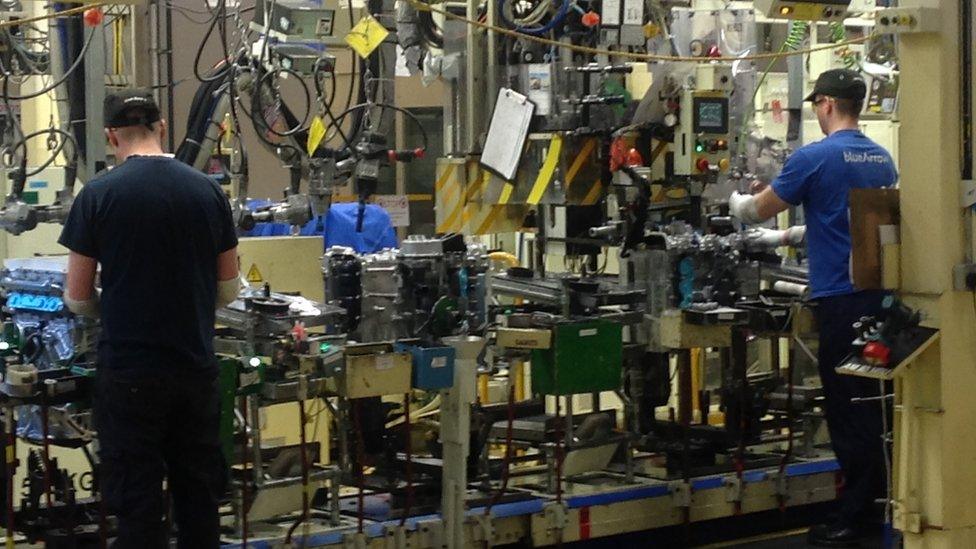
About 11,000 people make car components in Wales
Wales is not losing out to the north England for investment in electric vehicle batteries and the car industry, the economy minister has said.
About 11,000 people work making car components in Wales, but about 4,000 jobs have been lost since 2019.
Recent investment in the UK has been announced by Nissan in Sunderland and Vauxhall's owner in Cheshire.
Economy Minister Vaughan Gething described the industry in Wales as "going through a transitionary phase".
He said "that of course is an advantage for us as well as a risk" but denied Wales was losing possible investment to the north of England.
"On inward investment we have done relatively well in the last year or so," he said.
In June, Nissan announced the electric version of the Leaf would be produced in Sunderland, creating thousands of new jobs.
Its partner Envision said it would build a factory making batteries used to power the cars.
In contrast, until December it was thought British Volt would build a battery factory in St Athan, Vale of Glamorgan, creating 3,000 jobs.
It had signed a memorandum of understanding but, as 2020 ended, it announced it was moving the investment and jobs to Blyth, Northumberland.
Vauxhall's owner Stellantis is to make electric vans at Ellesmere Port, where several hundred staff from north Wales travel to work.
Asked if he was chasing-up opportunities for Welsh firms to supply the new vehicles, Mr Gething said "my officials are always in touch with potential investors".
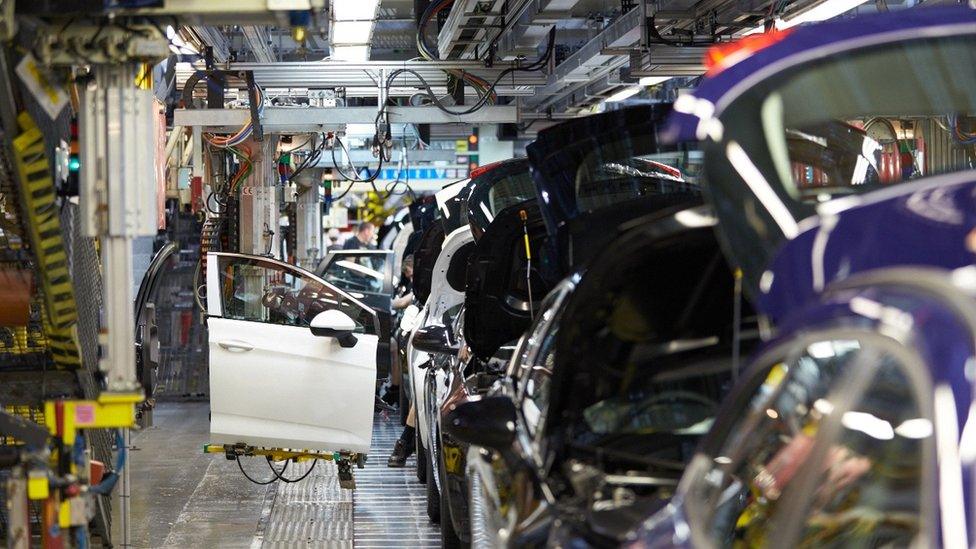
Vauxhall's owner is to make electric vans at its Ellesmere Port factory, which employs Welsh workers
He declined to say whether he or his office had been in touch with Elon Musk, the chief executive of electric car company Tesla, which is looking to build a battery factory in the UK.
The Welsh government's economic policy frequently mentions supporting local businesses.
But Mr Gething said: "It's not either/or... we are also interested in inward investment and seeing companies grow from small to medium to large."
He underlined the importance of the supply chains linked to the automotive and aerospace industries and how Wales needed those well-paid, skilled jobs too.
In the past few years the car industry has been hit by the pandemic, a global shipping crisis, a world shortage of semiconductors and a crisis in raw materials.
The closure of the Ford engine plant in Bridgend was a strong symbol - as it was in terms of the 1,700 jobs that went - and a warning sign to the industry that times were changing, and fast.
- Published6 July 2021
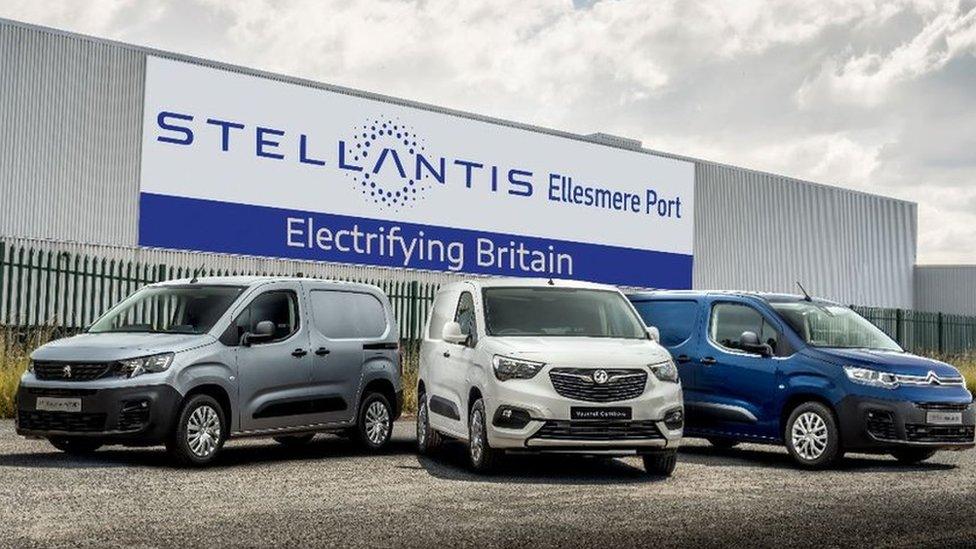
- Published28 June 2021
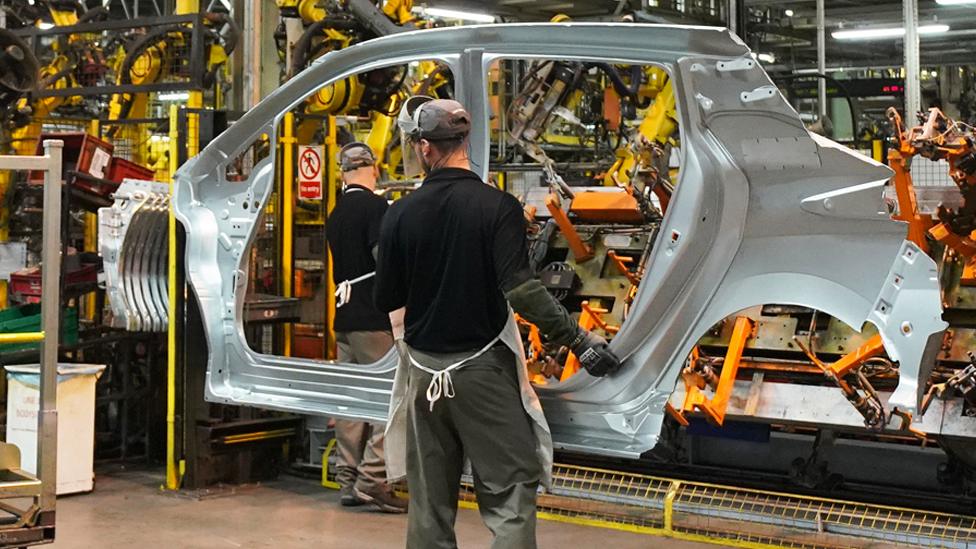
- Published17 March 2021
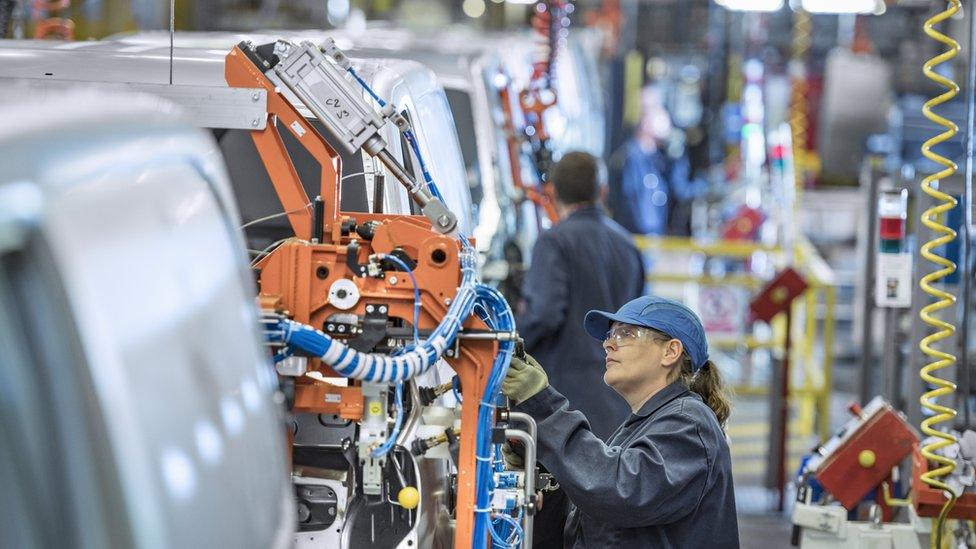
- Published11 December 2020
